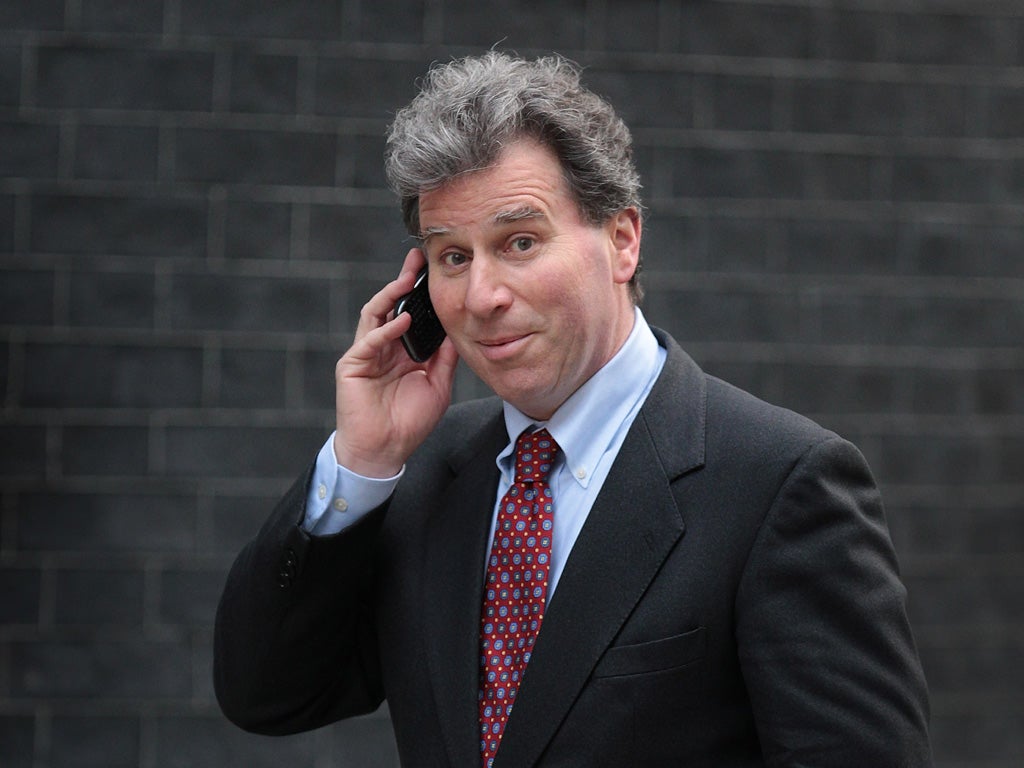Did Boris Johnson ‘get Brexit done’ by accident or design?
For a few strange months in 2019, Boris Johnson’s authority as prime minister was challenged by MPs including Oliver Letwin. John Rentoul digs into the archives


The first five months of Boris Johnson’s time as prime minister were some of the most remarkable in recent British history. His struggle with a deadlocked parliament tested the constitution to the limit, before ending suddenly in an election on terms favourable to him.
Historians will long puzzle over how it happened. Was the election Johnson’s cunning plan all along, did it come about because of mistakes made by Jo Swinson and Jeremy Corbyn, or was it likely to be the result of the gridlock anyway? These are the questions that lie behind a project by my colleagues at King’s College London, whose think tank UK in a Changing Europe has carried out long interviews with many of the leading characters in that drama.
The most recent batch to be published includes one with Oliver Letwin, one of the leaders of the Remainer majority in the 2017-19 parliament. Given that the authority of the government rests on a majority in parliament, he and his Remainer allies set themselves up as a kind of alternative government by mobilising a differently constituted majority in the same House of Commons.
Letwin had gone from being a cabinet minister under David Cameron to being a backbench rebel because he was so determined to stop a no-deal Brexit. But Johnson was equally determined to keep open the option of leaving the EU without a deal, if he couldn’t get his withdrawal agreement through parliament. Hence the decision to suspend or “prorogue” parliament, which Letwin attributed to “the genius of Mr Cummings” – Dominic Cummings, who was then Johnson’s chief adviser.
Letwin said: “I could see entirely their logic of seeking the prorogation, though I didn’t believe it was constitutionally proper. But then they made the evident tactical error of arranging things so the prorogation occurred after a number of days of sitting.
“The idea that they would prorogue after giving time for parliament to do what it needed to do to achieve the effects we wanted, rather than the effects they wanted, struck me as bizarre. I suppose it arose from the fact that Mr Cummings didn’t believe we knew what we were doing procedurally. Anyway, we did.”
Read more:
The suspension of parliament was therefore pointless, because Letwin and Hilary Benn, the Labour backbencher, had already succeeded in passing a law binding the government to seek a postponement of Brexit.
But that very success made an election possible, said Letwin: “The fundamental condition that Jeremy Corbyn had laid down for a general election, namely the fact that having an election wouldn’t precipitate us into leaving without a transitional arrangement during the election, was therefore met.
“For their own reasons, the leaderships of the SNP and the Liberal Democrats both thought – in the one case accurately, in the other case very inaccurately – that they stood to gain from having an election at that point. Even if Corbyn hadn’t capitulated, the government might very well have been able to get an election simply by having the SNP, the Liberal Democrats and certain Labour members voting with it.”
In the end, Letwin succeeded in averting a no-deal Brexit, at the cost of ending his parliamentary career and being expelled from the Tory party. And he ended up with a harder, Johnsonian Brexit than he thought was necessary – which he blamed squarely on the Corbyn-led Labour Party: “I thought that the likely outcome of a general election was that Corbyn would be massacred. I couldn’t see how that was going to lead to anything other than a very hard line from a new Conservative administration on Brexit.
“For other reasons, I think it was productive for the UK that Corbyn should be massacred. I thought he was outstandingly wrong; his leadership of the Labour Party was heading in an outstandingly wrong direction. I think it’s a huge advantage to the country to have a Labour Party run by Keir Starmer rather than by Jeremy Corbyn.
“From that point of view, I thought an election would be just fine. But from the point of view of Brexit, I thought it would not be fine at all. However, the fact I agreed about that with many people inside the Labour Party was not enough, because they were not the right people in the Labour Party.”
Yours,
John Rentoul
Chief political commentator
Join our commenting forum
Join thought-provoking conversations, follow other Independent readers and see their replies
Comments